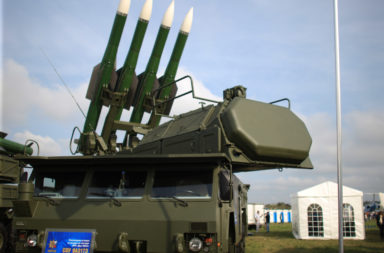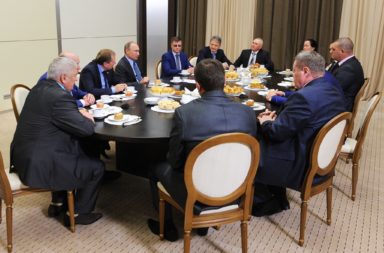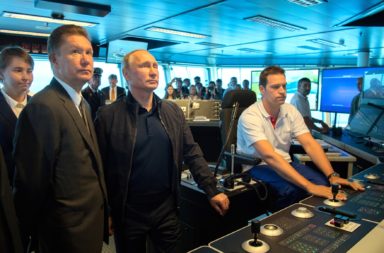Sir John Sawers, former head of MI6, has said that due to the west vacating Syria – and in turn failing to recognise that a new strategic relationship with Moscow is required due the substantial growth of Russian military power over the past 15 years – the world now faces cold-war-era threat levels.
- “We are moving into an era that is as dangerous, if not more dangerous, as the cold war because we do not have that focus on a strategic relationship between Moscow and Washington,” Sawers told the BBC on Wednesday.
He went on to say that the west needs to recognise that the balance of power has changed in the world, largely because the Russians have significantly bolstered their military power, and have shown willingness to use that power.
The UK Foreign Secretary was also under fire as Boris has called for demonstrations outside the Russian embassy in London. Sawers points out that its necessary to be mindful of the welfare of British staff in the Moscow embassy.
- “We all recall what happened to our embassy in Tehran,” Sawers said. A similarly violent attack on the UK embassy in Moscow was unlikely, he added, but “we need to be careful about the consequences of things we call for”.
Boris Johnson had called for such demonstrations partly to criticise groups such as Stop the War Coalition for failing to denounce the Russian bombing of Aleppo. He also reiterated allegations of Russian involvement in the attack which targeted an aid convoy last month.
Residents of Aleppo have said that air raids using the particularly powerful bunker-busting bombs have resumed. The death toll on Tuesday alone was 34, with 216 injured according to doctors on the ground, adding that the death toll is likely to be higher when taking into account some families do not bring their dead after retrieving them from bombarded sites.
No-fly zone
Sawers has rejected calls for a no fly zone which would prevent both Syrian helicopters and Russian planes from directly bombing Aleppo, noting that this might have been viable three of four years ago but is not feasible today.
- “You cannot have NATO forces or American forces operating in the same theatre as Russian forces without risking a very direct clash between the two.”
A partial no-fly zone is also not an option due to the fact that it would risk direct confrontation with Russia, who is unlikely to let its allies in the Syrian government be attacked.
“We have vacated the theatre and the Russians have moved in… It certainly was a mistake” – former chief of MI6 Sir John Sawers on Syria pic.twitter.com/whBSmFhx4F
— BBC Radio 4 Today (@BBCr4today) October 12, 2016
Syrian chemical weapons use in 2013 has led to this policy drought
Sawers says that the decision made by the House of Commons to not intervene in the wake of revelations that Syria was using chemical weapons on its own people in 2013, and the US holding off on strikes, had left the west with fewer options.
Sawers went on to say:
- “We vacated the theatre and the Russians moved in. It was certainly a mistake. Chemical weapons were being used against civilians in Damascus by their own regime. We had upheld a taboo against the use of chemical weapons and we have failed to uphold it on this occasion.”
- “We are not treating Russia and China as major powers that can cause us a great deal of damage, what we really need to avoid is moving down a road that leads to a direct confrontation.”
The west no longer has a clear and strategic framework for its relations with Russia, as had existed in the cold war ensuring stability. This is clearly seen by the lack of rules between China, Russia and the west on the legitimate use of cyber warfare.
In the Ukraine, the absence of this strategic framework led to the crisis, Sawers argues, saying Vladimir Putin misread the signals from the west and moved in, believing he was foiling a western-backed uprising.
Photo: John Kerry, US Secretary of States, is welcomed by Russian President Vladimir Putin March 24, 2016.From The Presidential Administration




